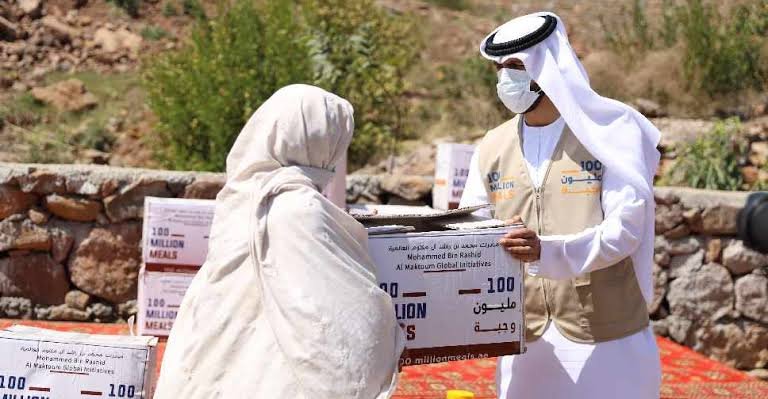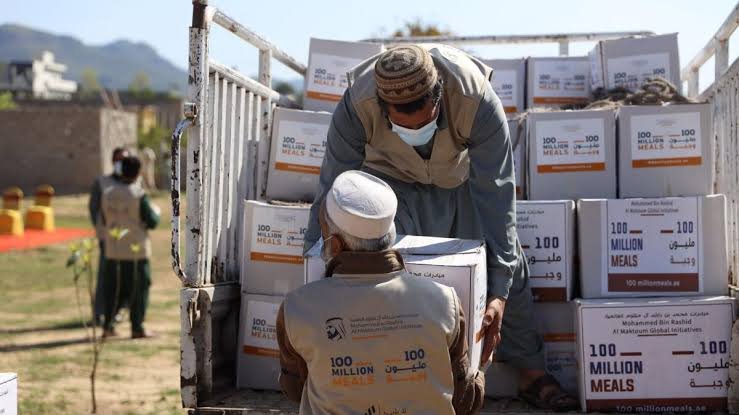In a world filled with abundance, the stark reality of hunger still looms large for millions. While some enjoy extravagant meals, others struggle for a single morsel of food. To bridge this gap, visionary initiatives like the 100 Million Meals campaign emerge as powerful symbols of hope, compassion, and global solidarity. This initiative is not just a food distribution campaign; it is a global call to action against hunger, uniting individuals, corporations, and governments to make a lasting impact.
The Vision Behind 100 Million Meals
The 100 Million Meals initiative was launched with a clear and ambitious mission: to provide food assistance to vulnerable individuals and families across various parts of the world. The campaign aims to reach the most marginalized communities, ensuring they have access to basic sustenance.
By addressing hunger and food insecurity, the initiative aligns with global efforts to achieve the United Nations Sustainable Development Goal (SDG) 2: Zero Hunger. The focus is not only on immediate relief but also on creating sustainable solutions to eradicate hunger in the long term.


Hunger: A Global Challenge
Hunger remains one of the most pressing issues of our time. According to estimates, more than 800 million people worldwide go to bed hungry every night. Many of these individuals live in regions affected by conflict, natural disasters, economic instability, or pandemics.
The COVID-19 pandemic further exacerbated the situation, pushing millions into poverty and worsening food insecurity. The aftermath left communities in dire need of assistance, highlighting the urgency of initiatives like 100 Million Meals.

Key statistics that underscore the gravity of the hunger crisis:
- Every 10 seconds, a child dies from hunger-related causes.
- 1 in 9 people globally do not have access to sufficient food.
- Acute food insecurity affects over 345 million people, with millions on the brink of famine.
A Campaign of Compassion
The 100 Million Meals initiative stands out for its scale, inclusivity, and innovative approach. Launched during Ramadan, a time of reflection and giving, the campaign tapped into the spirit of generosity and community. It inspired individuals from all walks of life to contribute, whether through monetary donations, volunteering, or raising awareness.
- Targeted Beneficiaries:
The campaign focuses on the most vulnerable populations, including refugees, low-income families, orphans, widows, and individuals affected by natural or man-made crises. The goal is to ensure that every donation directly reaches those who need it the most. - Global Reach:
The initiative transcends borders, delivering meals to communities in need across continents. It serves as a unifying force, bringing together people from different cultures, religions, and nationalities to fight hunger collectively. - Strategic Partnerships:
The campaign collaborates with local and international organizations, NGOs, and food distribution networks to maximize its impact. These partnerships ensure that resources are allocated efficiently and reach the intended beneficiaries promptly. - Sustainability Focus:
Beyond immediate food distribution, the initiative also emphasizes sustainable solutions such as supporting agricultural projects, improving food supply chains, and fostering community resilience against hunger.
How 100 Million Meals Works
The success of the 100 Million Meals initiative lies in its simplicity and effectiveness. The campaign operates on the principle that even small contributions can make a big difference when combined.
- Donations:
Individuals, corporations, and governments are encouraged to donate funds, which are used to purchase food supplies in bulk. The campaign ensures transparency, providing donors with a clear understanding of how their contributions are utilized. - Food Procurement:
Food items are procured locally whenever possible to support regional economies and reduce logistical challenges. Staples such as rice, lentils, flour, oil, and canned goods are prioritized, as they form the basis of nutritious meals. - Distribution:
With the help of partner organizations and volunteers, food packages are assembled and distributed to beneficiaries. Special care is taken to ensure that the food reaches remote and hard-to-access areas. - Community Engagement:
The campaign involves local communities in the distribution process, fostering a sense of ownership and solidarity. This approach also helps identify the most vulnerable households and individuals.
The Ripple Effect of 100 Million Meals
The impact of the 100 Million Meals campaign extends far beyond providing immediate relief to those in need. It creates a ripple effect, transforming lives and inspiring further acts of kindness.
- Empowering Communities:
By addressing hunger, the initiative empowers individuals to focus on other aspects of their lives, such as education, health, and employment. This, in turn, strengthens communities and promotes long-term development. - Raising Awareness:
The campaign sheds light on the global hunger crisis, encouraging people to think about their role in creating a more equitable world. It inspires a culture of giving and responsibility. - Fostering Collaboration:
Governments, businesses, and civil society organizations come together to tackle hunger, setting an example of how collective action can drive meaningful change. - Promoting Hope:
For those who receive assistance, the campaign is a lifeline. It restores their dignity, provides a sense of security, and instills hope for a better future.
Success Stories and Milestones
The 100 Million Meals initiative has achieved remarkable milestones since its inception. Through the collective efforts of donors, volunteers, and partners, millions of meals have been delivered to those in need.
Stories of impact:
- In refugee camps, families who once struggled to find a single meal now have access to regular food supplies.
- In regions affected by drought, the campaign has provided essential sustenance, saving countless lives.
- Volunteers who participated in the campaign have shared heartwarming experiences of connection, empathy, and fulfillment.
These success stories demonstrate the transformative power of compassion and highlight the importance of continuing the fight against hunger.
How You Can Contribute
Hunger is a global problem, and everyone has a role to play in solving it. Here are some ways you can contribute to the 100 Million Meals initiative or similar efforts:
- Make a Donation:
Even a small amount can make a significant difference. A single contribution can feed multiple families, proving that no act of kindness is too small. - Volunteer Your Time:
Participate in food packaging and distribution drives. Your time and effort can directly impact the lives of those in need. - Raise Awareness:
Share information about the initiative with your friends, family, and social media networks. Spreading the word can inspire others to join the cause. - Advocate for Change:
Support policies and programs that address hunger and food insecurity at local, national, and international levels. - Practice Sustainable Living:
Reduce food waste, support local farmers, and promote sustainable agricultural practices in your community.
Conclusion
The 100 Million Meals campaign is more than just an initiative; it is a testament to the power of humanity coming together to address one of the world’s most pressing issues. By providing meals to those in need, it not only alleviates hunger but also uplifts spirits, restores dignity, and inspires hope.
As the campaign continues to grow and expand its reach, it serves as a shining example of what can be achieved when people unite for a common cause. Together, we can build a world where no one has to go to bed hungry, and everyone has the opportunity to thrive.
Do follow Uae stories for more Updates
ICRICLife Max: A Game-Changer in Financial Security and Insurance Solutions












